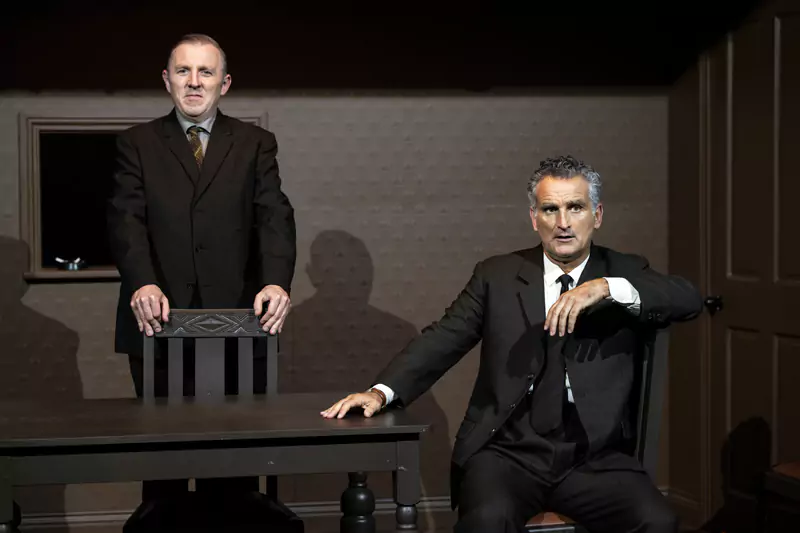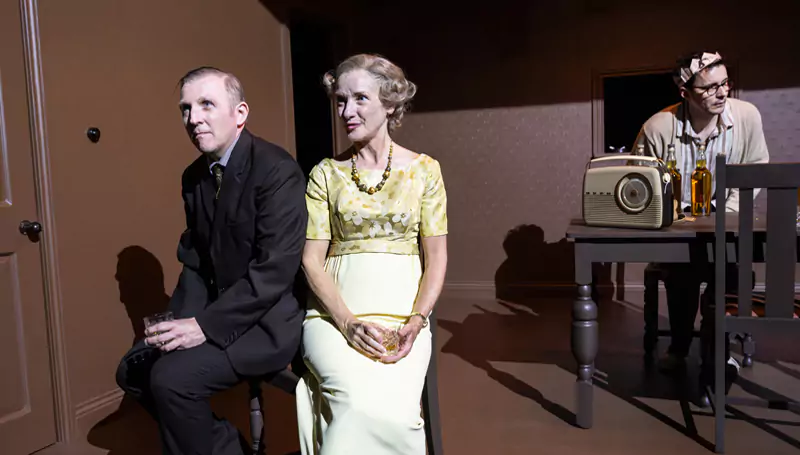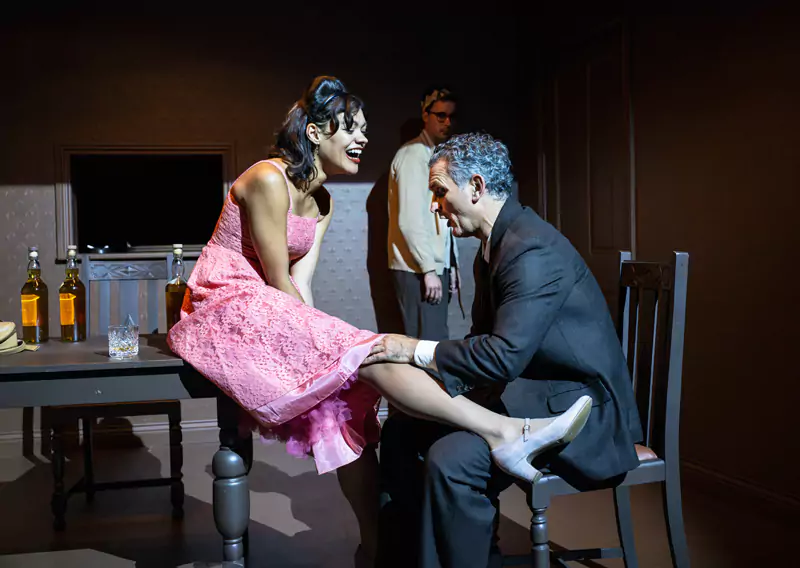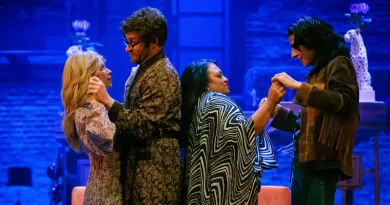“The Birthday Party” at Ustinov Studio, Bath
Simon Thomas in South West England
10 August 2024
On paper, director Richard Jones and playwright Harold Pinter is a perfect combination. Jones’s thrilling and inventive work in both theatre and opera – not least his recent superlative production of Sophie Treadwell’s play Machinal, which started life in Bath before transferring to London’s Old Vic – usually illuminates and shocks. But here he fails to shed new light on Pinter’s seminal comedy of menace. The results are largely predictable and, while never dull, give few insights or theatrical thrills.
 Caolan Byrne and John Marquez.
Caolan Byrne and John Marquez.
Photo credit: Foteini Christofilopoulou.
There is so much to explore in this early work, which has all the familiar Pinter themes of oppression, miscommunication, and elusive meaning. Two interlopers, intimidating thugs from some unspecified organization, throw an already fragile household into turmoil and terror. The banalities of everyday life, consumption of cornflakes, fried bread, and stewed tea, and the quotidian chores of deckchair management and popping to the shops are violated by the brutal intrusion of this pair. Not that all is peaceful in the seedy boarding house, as the mentally broken lodger Stanley Webber operates his own brand of tyranny over his unsuspecting landlady and her docile husband. The two new arrivals, resembling the bumbling hitmen of Pinter’s next play The Dumb Waiter, play on the existing fears and anxieties to achieve their unstated ends.
Jones uncharacteristically skates over the surface of all this, with little sense of the seething undercurrents of fear and psychological damage that pervade every line. There is too much reliance on empty shouting and little sense of a volcano erupting through the mundane surface.
Top billing and acting honours go to Jane Horrocks, whose battered seaside landlady Meg Bowles, frail in voice and physique, has a haunted quality that suggests a whole backstory of hurt and injury. Her obliviousness to the evil that is going on around her as she blithely takes part in some pretty horrible playground games is touching and alarming as she refuses to face the reality of the situation. Her abject fear of the men in the van with the wheelbarrow, harking back to goodness knows what past horror, is triggered by the despotic outbursts of her surrogate child Stanley in a few frightening and alarming moments before she descends back into a self-preserving naïveté. As the two thugs, Goldberg and McCann, act out their mysterious mission on the shattered Stanley, she lapses into complete blindness and denial, believing she is the belle of the ball in some imagined palace of comfort and security.
Carla Harrison-Hodge and John Marquez.
Photo credit: Foteini Christofilopoulou.
Jones and Horrocks have collaborated memorably before, on a thrilling Young Vic production of Brecht’s The Good Person of Szechwan, and their work together here is the greatest strength of the evening.
The rest of the cast impress less. Perhaps the most damaged character in the play is Lulu, the young woman who drifts in and out of the guesthouse, and easily gives herself up as a helpless plaything. There are strong hints of childhood abuse in her attraction to the much older Goldberg who inappropriately bounces her on his knee and plies her with booze. Carla Harrison-Hodge, who featured impressively in the recent Machinal, plays her with a fixed grin and little sense of the simmering pain beneath her eager-to-please facade, showing not much more than annoyance at being used as a one-night stand.
Sam Swainsbury rants and sweats as Stanley but never quite convinces, although a silent scream crouched in the corner of the room hints at more exciting possibilities. As the violent duo, John Marquez (Goldberg) and Caolan Byrne (McCann) are too obvious in their thuggery and one would have expected Jones to have drawn out more subtle and unusual portrayals from them. Meg’s hapless husband Petey, who lingers on the sidelines with impotent empathy, is portrayed inertly by Nicolas Tennant.
ULTZ’s set is rather clinical and clean, hardly establishing the shabbiness of the run-down guesthouse whose peeling walls and scratched furniture reflects the psyches of the characters, although the use of a downstage screen representing windows to the outside world at the beginning and end of scenes has more exciting visual potential.










